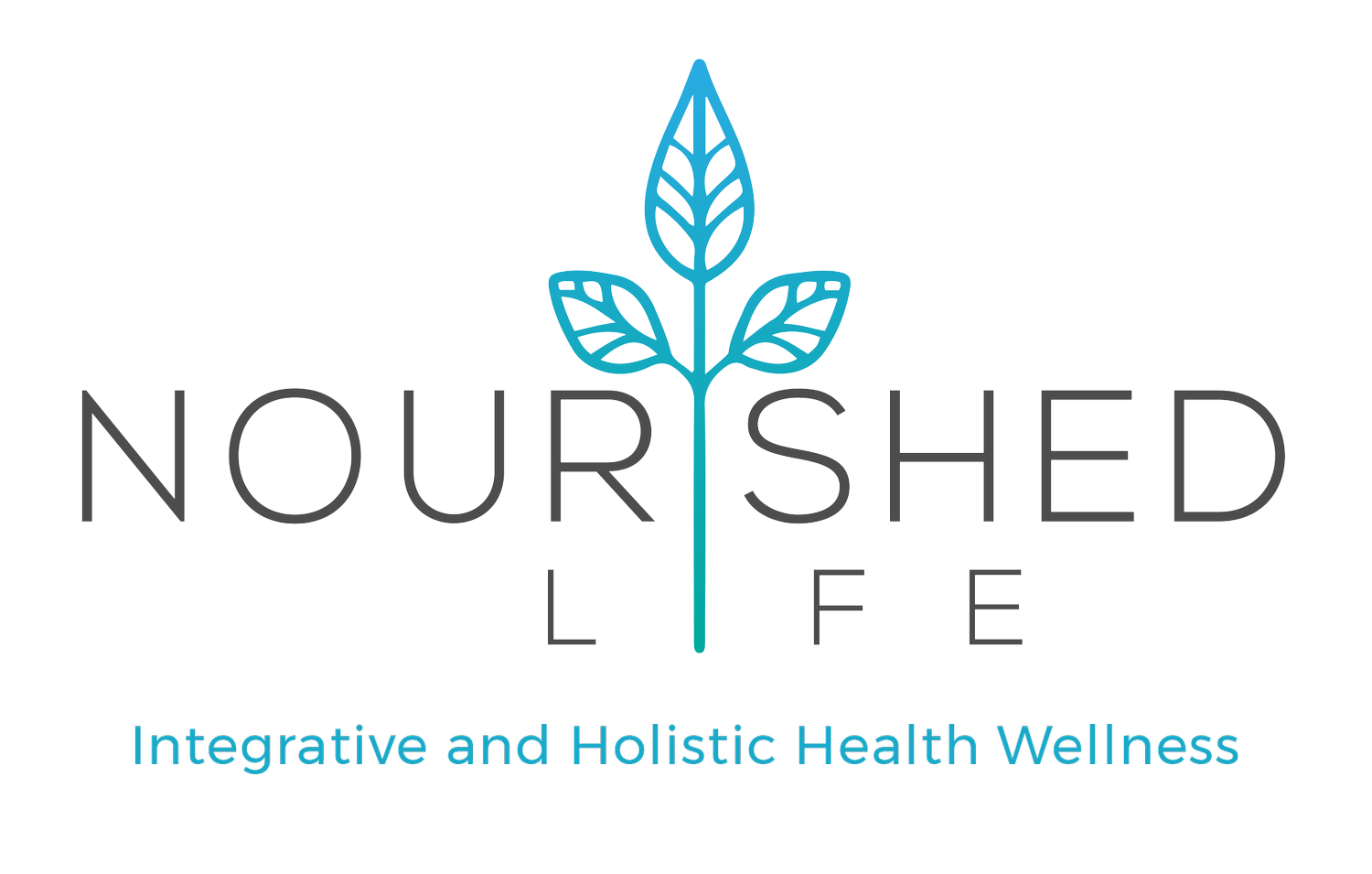7 Physical Signs Of Nutrient Deficiencies
It's reported 90% of Americans have at least one nutritional deficiency. Optimal vitamins and minerals are required by the body to eliminate toxins, promote digestive health, cardiovascular health, and mitochondria health. But how do you know when you aren't meeting your body's needs?
I have yet to have one wellness client come see me who has not been deficient in either their vitamins or minerals and it's typically both. With the use of at-home functional medicine lab testing we can see their mineral levels, electrolytes and vitamin deficiencies.
Nutrient deficiencies, especially over a long period of time can often be the root cause or contributing factors to many health struggles.
7 Physical Signs Of Nutrient Deficiencies
1. Hair Loss or Premature "Greying" Of Hair
2. Lower Energy and Fatigue
3. Catch Colds Easily
4. Itchy Red Rashes
5. Sensitive Gums or Poor Teeth Health
6. Leg Muscle Cramps
7. Poor Workout Recovery
Most Common Nutrient Deficiencies
Magnesium
Calcium
Iodine
Vitamin D
Iron
Vitamin C
Omega 3
B 12
Zinc
Top 6 Reasons People Are Nutrient Deficient
1. Low stomach acid.
2. Gut dysbiosis and imbalances leading to poor nutrient absorption.
3. Poor blood sugar balance can deplete key nutrients.
4. Chronic stress can deplete key nutrients.
5. A diet low in micronutrients and high in processed foods and sugar.
6. Soil depletion: Because of soil depletion, crops grown decades ago were much richer in vitamins and minerals than the varieties most of us get today.
Path To Improved Nutrients
It always starts with addressing the root cause as to why you are nutrient deficient and/or not absorbing your nutrients properly. It also always starts with food and you cannot out supplement a bad diet. With that said, high quality functional medicine supplements are often needed to get nutrients to optimal levels for most people. It is best to work with a natural health practitioner to make sure you are taking the correct supplements for YOUR body.
Magnesium Rich Foods
Magnesium is a cofactor to hundreds of enzyme systems in the body, affecting muscle and nerve function, blood glucose control, blood pressure regulation, and more.
Cooked Spinach
Dark chocolate
Sunflower seeds
Cooked Swiss Chard
Cashews
Mackerel
Flaxseeds
Almonds/almond butter
Pumpkin seeds
Black beans
Avocado
Quinoa
Spirulina
Mung beans
Banana
Calcium Rich Foods
Calcium supports functions including bone building, nerve conduction, heartbeat regulation, muscle contractions and weight maintenance. In order for your body to properly absorb and use calcium, you need other essential nutrients, including magnesium, vitamin D and K. Because of this, it's not a good idea to supplement with calcium in isolation.
Sardines (canned with bones included)
Yogurt or Kefir
Raw Milk or Almond Milk
Goat Cheese
Kale (raw)
Bok Choy
Almonds
Broccoli (Raw)
Iodine Rich Foods
Your body can’t produce iodine, which makes it an essential micronutrient and is mostly found in seafood. Iodine is critical for your thyroid and plays an important role in the production of thyroid hormone.
Seaweed
Cod
Yogurt
Shrimp
Dried Kelp
Eggs
Tuna
Iodized salt
Vitamin D Rich Foods
Known as the sunshine vitamin, Vitamin D is produced in your body when the sun’s ultraviolet rays hit your skin. Most people do not get enough vitamin D through sunlight nor does food offer a abundance of Vitamin D3, so supplementation is often recommended.
Wild Caught Salmon
Egg Yolks
Shitake Mushrooms
Almond Milk
Cod Liver oil
Iron Rich Foods
Iron is a trace mineral and important in making red blood cells, which carry oxygen around the body.
Grass Fed Beef
Spirulina
Lentils
Dark Chocolate
Black Beans
Pumpkin Seeds
Vitamin C Rich Foods
Vitamin C helps to protect cells and keep them healthy. It also helps with wound healing and to maintain healthy skin, blood vessels, bones and cartilage.
Citrus fruit, such as oranges and grapefruit
Red Pepper
Kiwi
Blackcurrants
Broccoli
Strawberries
Brussels Sprouts
Cauliflower
Mango
Omega 3 Rich Foods
Omega-3 fatty acids are one of the "good" types of essential fats. They may help lower the risk of heart disease, depression, dementia, and arthritis. Your body can't make Omega 3's so they need to be consumed via foods or supplements.
Wild Caught Salmon
Cod Liver Oil
Sardines
Flaxseeds
Chia Seeds
Walnuts
B12 Rich Foods
Vitamin B12 is an essential vitamin. This means that the body requires vitamin B12 to work properly. Vitamin B12 helps the body produce healthy red blood cells, maintains energy levels, brain and nervous system health, skin health and heart health to name a new.
organic, grass-fed dairy products
cage-free eggs
grass-fed red meat
wild-caught fish
Zinc Rich Foods
Your Immune cells depend on zinc for healthy development and research shows that this essential mineral can interfere with the molecular process that causes mucus and bacteria to build within the nasal passages as well manage blood sugar and promote a healthy heart and blood vessels.
Grass fed Beef
Caswhews
Chickpeas
Pumpkin Seeds
Mushrooms
Wild caught Salmon
Cocoa Powder
What Can I Do??
If you are experiencing signs of nutrient deficiencies, it’s helpful to work with a Integrative Health Practitioner. A IHP can run functional medicine labs to test for nutrient deficiencies and deeper imbalances and then properly address them using an Integrative approach in order to rebalance your body, lower inflammation and feel well on a deeper level.
If you are interested in running a Functional Medicine Lab to get to the root cause of your symptoms or imbalances, please schedule an Integrative Health Assessment with Laura Pounds, IHP.
